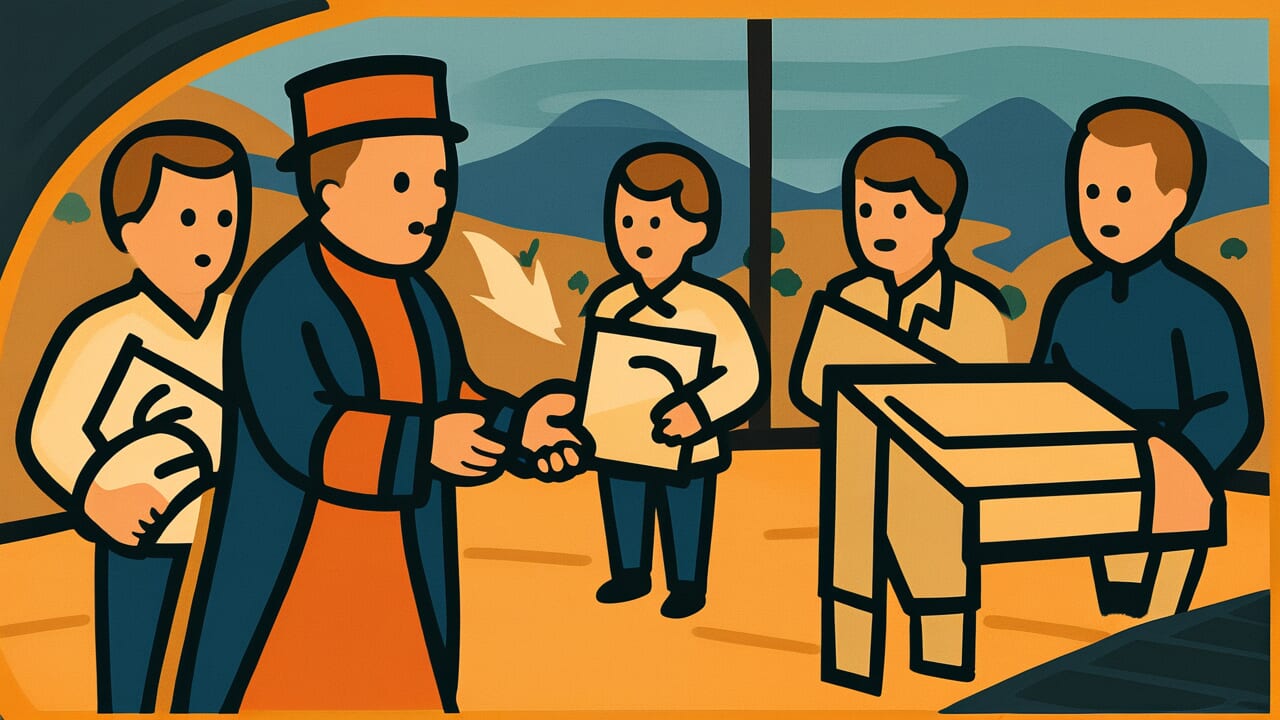How to Read “History repeats itself”
rekishi wa kurikaesu
Meaning of “History repeats itself”
“History repeats itself” means that situations similar to past events occur again.
In human society, the basic nature of people and social structures don’t change much over time. When similar circumstances arise, they tend to produce similar results.
This phrase is often used when talking about wars, economic crises, and political turmoil. These are events that have happened many times throughout history.
People also use it on a personal level. It describes how individuals sometimes make the same mistakes over and over.
The phrase carries a warning. If we don’t learn from past lessons, we’ll make the same errors again.
Today, people often quote this saying when explaining why studying history matters. It reminds us that the past holds valuable lessons for the present.
Origin and Etymology
“History repeats itself” is not actually an ancient Japanese proverb. It became popular in Japan after Western ideas arrived during the Meiji period.
Western thinkers have discussed the cyclical nature of history since ancient times. The Greek historian Thucydides and the Roman politician Cicero both wrote about it.
One famous quote comes from the 19th-century German philosopher Hegel. He supposedly said, “What we learn from history is that people don’t learn from history.”
During the Meiji period, Japan eagerly imported Western philosophy and historical perspectives. The concept of repeating history took root and was expressed in the simple Japanese phrase “rekishi wa kurikaesu.”
Japan already had traditional sayings about learning from past mistakes. For example, “the overturned cart ahead is a warning to the cart behind.”
However, the grand view that all of history moves in cycles came from Western thought. Japanese culture absorbed and adapted this idea.
The phrase stuck in Japan because people witnessed similar events repeating across different eras. Wars, economic crises, and social upheavals seemed to follow familiar patterns.
Usage Examples
- Another recession is here. They say history repeats itself, and it’s really true.
- The pattern of dictators rising and starting wars is scary. History repeats itself.
Universal Wisdom
The deepest truth in “History repeats itself” is that human nature hasn’t changed in thousands of years.
Technology advances and social systems evolve. But the human heart remains constant. Our desires, fears, hopes, and tendency to make mistakes are the same as in ancient times.
The desire for power, the greed to monopolize wealth, fear and distrust of others, and baseless confidence that “I’ll be fine” are timeless human traits.
This is why political struggles in ancient Rome, religious wars in medieval times, and modern world wars share surprisingly similar underlying human dramas.
But this saying also contains hope. If history repeats, then ancient wisdom still applies today.
The lessons our ancestors left behind and the solutions they found through trial and error can help us now. They may take different forms, but they remain useful.
Studying history means accessing the vast accumulated experience of humanity. It’s like having a database of millions of real-life experiments.
This universality is why this proverb has endured for so long. As long as we’re human, we’ll feel the same joys and risk making the same mistakes.
Recognizing this is the first step toward true learning.
When AI Hears This
History repeats because human societies can only settle into a limited number of “stable states.” This can be explained through complex systems science using the concept of attractors.
Think of a pendulum. No matter how wildly you swing it, it always comes to rest pointing straight down. That bottom position is an attractor.
Human society works the same way. No matter how violently revolutions or reforms shake things up, systems eventually get pulled toward certain patterns.
Consider Napoleon’s dictatorship after the French Revolution, Stalin’s after the Russian Revolution, and Mao’s after the Chinese Revolution. These aren’t coincidences.
They’re examples of social systems being pulled toward the attractor called “power vacuum.” The pattern emerges naturally from the system’s dynamics.
Economic bubbles follow the same principle. Collective human psychology has an attractor of “optimism and pessimism swings.”
No matter how many regulations you create, the system oscillates between these two extremes. The 1637 Tulip Bubble, the 1929 Great Depression, and the 2008 Lehman Shock happened in different times and places.
Yet their graphs look almost identical. The mathematical shape is the same.
History doesn’t repeat exactly. But it keeps getting pulled back to the same mathematical “shapes” even when surface details differ.
The number of stable states that complex human societies can achieve is surprisingly small. That’s why patterns recur.
Lessons for Today
“History repeats itself” teaches modern people the importance of humility.
We tend to think “this time is different” or “our era is special.” But people in the past thought exactly the same thing.
This arrogance is the biggest reason we repeat the same mistakes.
That’s why studying history has real value. It’s not just about gaining knowledge. It’s about understanding both the limits and possibilities of being human.
When you know past failures, you can pause and think when you’re about to walk the same path. When you know past successes, you can move forward with hope even in difficult situations.
Modern society overflows with information. Everything seems new and unprecedented.
But most fundamental problems existed in the past too. Relationship troubles, social division, economic instability—these are timeless challenges.
Wisdom for dealing with them is already accumulated in history. The problem you’re facing now has probably been experienced and overcome by someone before.
By using history as humanity’s shared treasure, we can make wiser choices. The past isn’t just behind us—it’s a resource for navigating the future.



Comments